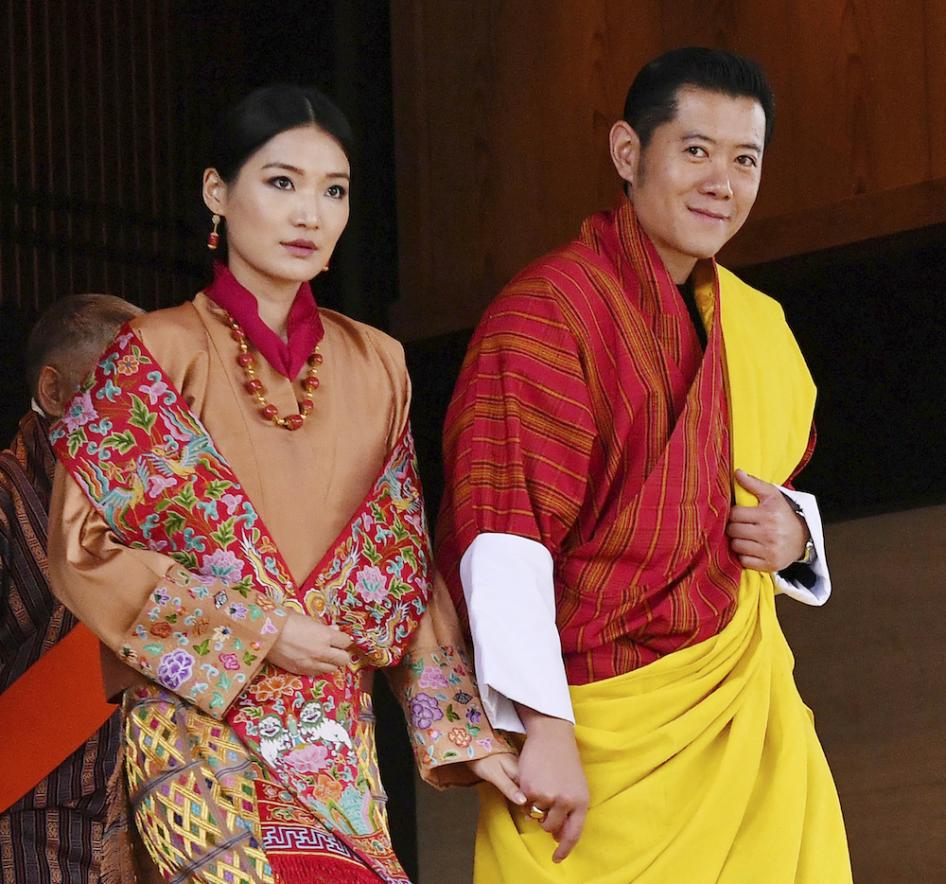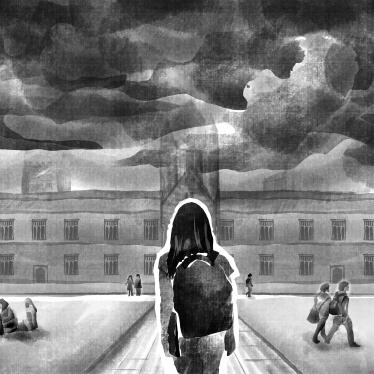Bhutan is famous for its pristine mountains, Buddhist monarchy, and an official doctrine of pursuing Gross National Happiness. Later this week, King Jigme Khesar Namgyel Wangchuck will pay a visit to Australia. While King Jigme Khesar is here — meeting with politicians, business leaders and Australia’s Bhutanese community — spare a thought for the 34 political prisoners who are still languishing in his nation’s jails.
These tragic cases originated before 2008, when the present king came to the throne, and Bhutan introduced a new democratic constitution. The country thereby changed from an absolute monarchy into a multi-party democracy with a constitutional monarchy. But even as Bhutan modernised, its political prisoners remained locked up in dire conditions.
Through interviews with former and current prisoners and their families, a review of available court documents, and a survey of Bhutanese laws, Human Rights Watch has identified 34 men defined by Bhutan as “political prisoners” or “anti-nationals,” who have been in jail for between 16 and 34 years. Most of them are serving sentences of life without parole. They, or their families told us that they were tortured to obtain confessions and had no defense lawyers at their trials.
Ram Bahadur Rai, who is now 66 years old, was among around 90,000 Nepali-speaking Bhutanese who became refugees in 1990 when the government unleashed state violence against their community and drove them into exile. In 1994, when he was about 36, he returned to Bhutan to campaign for the right to return and told us he was distributing political leaflets when he was arrested. He said he was accused in a “fabricated” case of participating in political violence.
Rai told Human Rights Watch that before and during his trial, he was tortured so severely that he had to be hospitalised, only to be returned to jail and tortured again. By the time he was convicted and sentenced to almost 32 years in prison, he said the torture had left him unable to write his own application for an appeal. The appeal was rejected, and he was warned that if he appealed again his sentence could be increased.
After serving 30 years, with a little time knocked off for good behaviour, he was released in July 2024. He immediately sent a photograph of himself to his four children, “so they can know what their father looks like”. He had not been allowed to communicate with his family since 2012.
Rai described to us the painful conditions for the remaining political prisoners. Rations have declined to half their previous level, and the prisoners have had to resort to using rice sacks for clothing and bedding because those that are provided are insufficient in the generally cold climate. If prisoners need medicine, they buy it by selling some of their food to the guards. The details Rai describes match the account of another man, Madhukar Monger, aged 58, who was released last year after serving 29 years for distributing leaflets.
Most of Bhutan’s political prisoners may never be released, however. 24 of them are serving life sentences with no possibility of parole. Their only chance of freedom is if the king grants them an amnesty. Even after the democratic reforms of 2008, only the king has the power to release prisoners serving a life sentence.
Among the lifers are 15 people who became refugees when they were small children in 1990. They returned to Bhutan as young men involved with the Bhutan Communist Party, to campaign for the right to return. The government accused them of terrorism, which they have always denied. Even the prosecution at their trials did not allege any acts of violence.
Also among the political prisoners are four members of another Bhutanese ethnic group known as Sharchop. They were associated with a banned political party called the Druk National Congress that campaigned for democratic reforms in the 1990s.
Bhutan is proud to project an image around the world of being an enlightened and progressive government. Bhutanese law is based on Buddhist principles, such as compassion. The Bhutanese constitution provides guarantees against some human rights violations, including torture. And since the 2008 political changes there have been efforts to modernise the legal system, like the provision of defence lawyers at some trials.
Australia is one of the few nations to have diplomatic relations with Bhutan. It is a rare opportunity to have Bhutan’s monarch on Australian soil. The federal government should urge King Jigme Khesar to end the mistreatment of these prisoners, who were unjustly imprisoned so many decades ago. And the king, in turn, should exercise his unique power to show compassion and end the suffering of these prisoners and their families by releasing them. He could do it with a stroke of his pen.
Bhutan’s political prisoners should be freed, and this sad chapter, and the suffering it has caused, should be consigned to the nation’s past.









